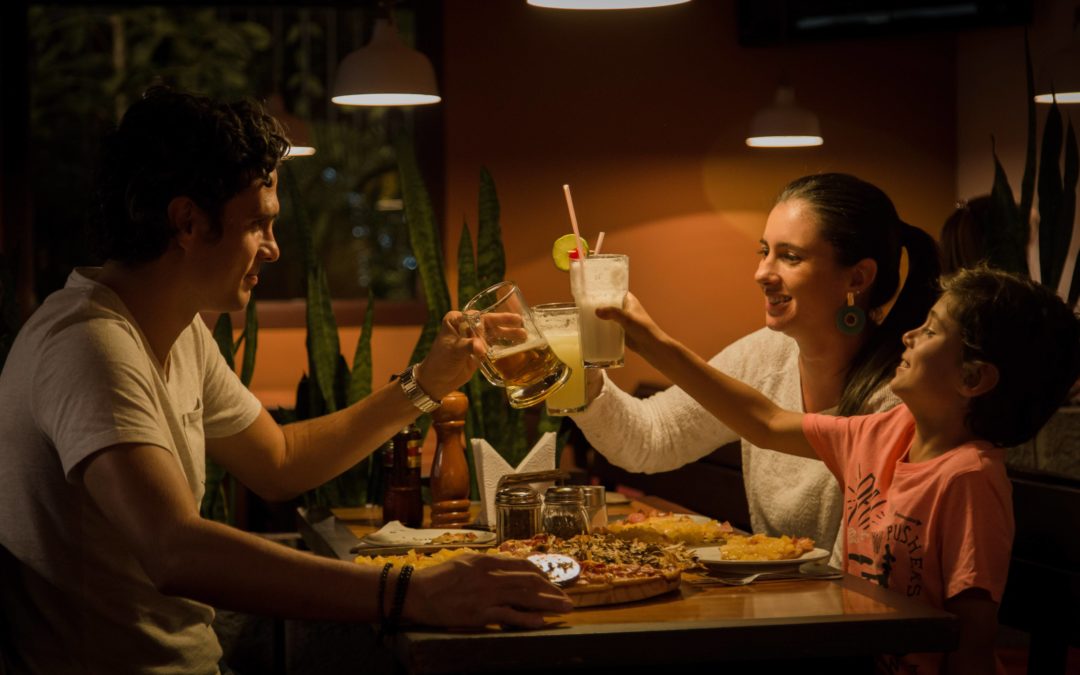- Anti-Racism Tip #8: If It Needs a Disclaimer, Don’t Say It - October 18, 2022
- On Tender Moments that Take Us By Surprise - May 18, 2022
- Finding Creative Ways to Exercise During the Pandemic - April 29, 2022
Deep self-reflection is an important skill that can support people to be successful in all aspects of their lives. Self-reflection can help people learn from their experiences, improve their relationship skills, and overcome obstacles that stand in the way of their goals and dreams. It can also help people discover their passion, purpose and superhero powers.
But how do people become deeply self-reflective? And just as importantly, how can we raise our children with the skill of deep self-reflection?
On the Importance of Cultivating an Environment of Self-Reflection
Growing up, my parents nurtured and encouraged deep self-reflection.
Every night at dinner, we would have family conversations that included two key parts: (1) a structured reflection on our day; and (2) a discussion of world news.
First, my parents would lead a conversation each night where each child was asked to reflect on something that they learned in school. This process of going back through your day and reflecting on something you learned was a structured method of developing self-reflection in us starting at a very young age.
Our house also had an open door policy and we were allowed to bring friends home from school anytime. With four of us, this sometimes meant an additional four or more kids at our house for dinner. And if this happened, my Mom and Dad would just cook up more food for dinner. On those nights that we brought friends over, we learned to prepare our friends for the dinner conversation as early on, we had seen some of our friends taken by surprise by our parents’ questions about what they learned in school.
Second, drawing on my Dad’s British tradition, my parents would tell us about different things that were going on in the world. We had a world map hanging on the wall beside the table. Each night during these conversations, the responsibility fell to one of the younger children to stand up on the bench near the wall and point to the spot on the map we were discussing (this was generally reserved for my sister Rachel and I since we sat on the bench and were the littlest). I remember feeling that this was a very important job and it seemed to entertain the family as my Dad or Mom would say: “move your finger a little bit to the right,… a little more… down down down… stop! Yes, right there!”
Because so many of our friends came over for dinner, it became apparent that the conversations that happened at our dinner table were markedly different than the conversations that were (or were not) happening at our friends’ houses. In fact, many of the friends indicated that they mostly watched TV during dinner. They also indicated that they loved coming to our place for dinner and being involved in the important conversations that happened at our family dinner table.
Now, as adults, I and all of my siblings are adept at engaging in deep, reflective conversations. We developed the skill, through structured nightly discussions, of reflecting on our day and drawing out lessons and larger themes. This self-reflection also helps us stay in touch and articulate our feelings about things that are happening in our lives.
We were also steeped in a deep awareness of not only what was happening in Canada but also what was happening around the world. We grew up understanding injustice, understanding war, and understanding the idea that governments could make decisions that were unfair for the people who lived in their own country. These discussions taught us important lessons about Canada’s place in the world and our responsibility to take a stand against injustice.
And guess what?
As I journey through the world, I realized that not all people have developed the skill of deep self-reflection. And it is important to emphasize that deep self-reflection is a skill. It has to be nurtured, taught and then practiced.
So if you want to nurture deep self-reflection in your children, here are some ideas:
1. Eat dinner together as often as possible.
There are so many benefits for eating dinner together as a family. Anne Fischel, a family therapist, indicates that this is the most important thing you can do with your kids and supports children’s intellectual, physical, and relational growth.
Because of the importance of connecting with each other at dinner, we have a no toys and no devices rule at our dinner table. We turn off the TV and music so we can focus on each other and our conversations together. Importantly, this carves out a consistent time each day for connection as a family.
2. Structure daily conversations to nurture deep self-reflection.
Creating a routine time for structured daily conversations is a good place to start. As mentioned above, dinnertime is a great time to do this but bedtime can also work on days when dinners together aren’t an option. Here are three ideas to start a structured conversation in your family:
- Sharing your favourite part of the day: This is one of my favourite structured conversations because it provides children of all ages the opportunity to participate. It also requires each person to think carefully about their day and pick one part to talk about. Often, through this conversation, we learn much more than just one thing about each person’s day and at times, people also share parts of their day that didn’t go as well. This has the added benefit of keeping the lines of communication open between children and parents and helps us identify if the kids are having any stresses or worries at school.
- 2 truths and one lie: In this structured discussion, each person takes a turn telling two things that really happened during their day but one that didn’t and the others guess which one is a lie. This is a fun activity that supports the sharing of experiences as well as creativity.
- Things You’re Grateful For: A simple one that you can do at any time of day is to ask your children to identify one or more things they are grateful for each day and share things you are grateful for as well. My good friend, Kizhay, does this with her children at the beginning of every family meal. Gratitude is such an important part of a healthy mindset and contributes to overall wellness. And even at challenging times, the ability to identify things we are grateful for can help us navigate those difficulties more effectively.
The key here is to create enough space for each person to participate fully. As each person takes their turn, they have the floor – everyone else is quiet and listening while they speak until they are done. This helps everyone, children and adults alike, developed active listening skills and the ability to not interrupt others. It also reinforces their role and value as an important member of the family.
In addition to one of the above activities, you may also want to include a discussion relating to important values or deeper core beliefs. This can come in the form of discussing world events, reading from a sacred text, reading and discussing a favourite saying or quote or sharing lived experiences through story. All of these are powerful ways to teach children (and adults for that matter) about values, characteristics, and beliefs. Each of these types of conversations can help nurture their skills of deep self-reflection and set an important foundation for critical thinking and feeling skills, including self-awareness and empathy.
3. Use open ended questions to deepen the conversations.
As children grow into teens, a common complaint from parents is that they start to talk less. How many times you heard parents of teenagers say that they only give one-word answers? The structured conversations set out above can help encourage teens and pre-teens to share more about their thoughts, worries and experiences. In addition, following up during the discussions with open-ended questions can help deepen the conversations and encourage further self-reflection.
So you can ask: “Can you tell me more about that?” “What else happened?” “What did you think after that happened?”
Closed questions (those that only invite a “yes” or “no” answer) can stop conversations. Open-ended questions, on the other hand, invite deeper thinking, more sharing and often help to uncover larger lessons that may be drawn from an experience.
Dr. Ross Greene also shares a formula for parents to have an effective structured conversation with their children in his book The Explosive Child, which I shared my experiences about in this article.
As parents, we’re constantly considering how we can contribute to our children’s physical, spiritual, mental and emotional health as they grow. Creating an environment that actively encourages deep self-reflection will help children grow into thoughtful, self-aware and empathetic adults.
So consider including one or more of these conversations at your family dinners to create an environment for your children to develop skills of deep self-reflection. And then let us know how it goes by posting a comment below!
If you liked this article, check out:


Once again, great practical ideas on how to open up meaningful discussions. Thanks Kirsten!
Thanks Hernan! It’s so important to create an environment for children to share with parents about their experiences and to cultivate their abilities to think deeply about different topics. I appreciate this positive feedback because you are a deep thinker and a great conversationalist!